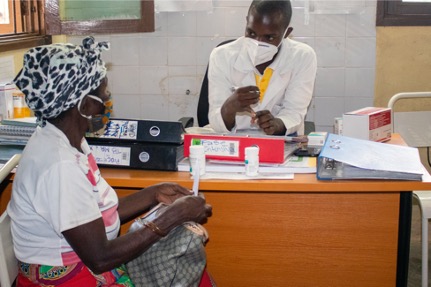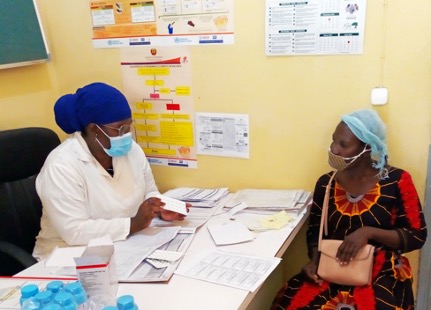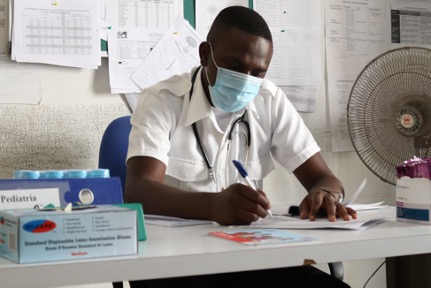“It’s valuable work; if Clinical Advisors ceased to exist, data would fall.”
Timóteo Makenda
Quelimane District HIV and STI Focal Point
In the first quarter of COP19, VUMC/FGH faced a 33% budget reduction, compared to the COP18 budget. As a result, the VUMC/FGH team was restructured, including a reduction in the provincial and district TB teams. As a consequence, during COP19, the VUMC/FGH TB program had only one TB/HIV Provincial Manager and two Regional TB/HIV Coordinators.

Simultaneously, new data and care & treatment tools (e.g. master card) were being introduced, leading to overburdened data clerks taking on additional tasks, leading to issues with data quality and completeness. This may have affected Tuberculosis (TB) Preventive Therapy (TPT) initiation and data completion capturing. With the transition to these new tools, the majority of the electronic patient database (OpenMRS) reports needed to be revised to include the new patient file variables. This process hindered the optimal implementation of FGH’s Standard Operating Procedure (SOP) that tracks the proportion of HIV-positive, ART-treated patients who initiated a standard course of TPT in the prior reporting period that also completed therapy (TB_PREV data triangulation SOP). Such constraints negatively impacted TPT initiation, patients being registered as initiating TPT, and patient data completion.
As a result, during Q4 of COP19, the FGH District Clinical Advisors commenced a more intensive monitoring of the implementation of the TB_PREV data triangulation SOP while balancing their time between HIV and TB activities, with support from FGH’s Monitoring &Evaluation team. The successful implementation of this SOP was only possible thanks to the engagement and invaluable contributions of the Clinical Advisors.
"It was hard work because we worked at a time without ODACs [District Collaborative Activities Officers (TB staff)], so the Clinical Advisor also ended up taking over the ODAC position, which directly monitored this indicator. So, when we lost ODACs, Clinical Advisors started working directly with this indicator [TB_PREV]. Despite the many activities that Clinical Advisors had, in order to have good results they also had to find a way to monitor this indicator. There were several interventions ... we had support from the provincial team and the national team in devising new approaches, methodologies and new strategies to improve." said Tânia Mulhanga, an FGH Clinical Advisors involved in this process.

During semester 1 (S1) COP19 (October 2019 – March 2020), 6,141 of patients who initiated TPT during Semester 2 (S2) COP18 completed a six-month course of TPT. However, during the recently completed Semester (Semester 2 (S2)) of COP19 (April 2020 – September 2020), 18,362 patients who initiated TPT during S1 COP19 completed a six-month course of TPT with Isoniazid, representing an ~ 3-fold increase when compared to S1 COP19 performance. According to UNAIDS, TB is one of the leading causes of death amongst people living with HIV, which makes the achieved results significant. Ensuring full coverage of TPT for all eligible PLHIV is an indispensable part of reducing HIV-associated mortality.
“The team of District Clinical Advisors who worked with me worked very well. They implemented certain strategies that helped us [in the National Health System] so much in the improvement of some of our data. (…) If it were not for the District Clinical Advisors, I think that we, in the National Health System, would not have overcome one or another barrier (…) It’s valuable work. If Clinical Advisors ceased to exist, data would fall.” Timóteo Makenda, Quelimane District HIV and STI Focal Point.
